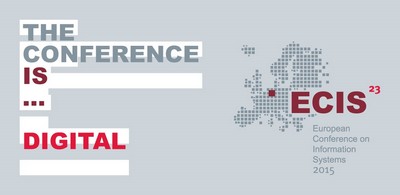DOI
10.18151/7217398
Abstract
Leveraging the benefits of business intelligence and analytics (BI&A) and improving decision quality does not only depend on establishing BI&A technology, but also on the organization and characteristics of decision processes. This research investigates new perspectives on these decision processes and establishes a link between characteristics of BI&A support and decision makers’ modes of information processing behavior, and how these ultimately contribute to the quality of decision outcomes. We build on the heuristic–systematic model (HSM) of information processing, as a central explanatory mechanism for linking BI&A support and decision quality. This allows us examining the effects of decision makers’ systematic and heuristic modes of information processing behavior in decision making processes. We further elucidate the role of analytics experts in influencing decision makers’ utilization of analytic advice. The analysis of data from 136 BI&A-supported decisions reveals how high levels of analytics elaboration can have a negative effect on decision makers’ information processing behavior. We further show how decision makers’ systematic processing contributes to decision quality and how heuristic processing restrains it. In this context we also find that trustworthiness in the analytics expert plays an important role for the adoption of analytic advice.
Recommended Citation
Kowalczyk, Martin and Gerlach, Jin P., "Business Intelligence & Analytics and Decision Quality - Insights on Analytics Specialization and Information Processing Modes" (2015). ECIS 2015 Completed Research Papers. Paper 110.
ISBN 978-3-00-050284-2
https://aisel.aisnet.org/ecis2015_cr/110


